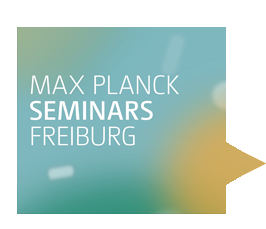Robert Schneider - Chromatin modifications and their role in transcription
Max Planck Seminar
- Date: Nov 13, 2019
- Time: 01:00 PM - 02:00 PM (Local Time Germany)
- Speaker: Robert Schneider
- Institute for Functional Epigenetics, Helmholtz Center Munich, Germany
- Location: MPI-IE
- Room: Main Lecture Hall
- Host: Nicola Iovino

Research Interest
“One of the major goals of post-genomic biology is to understand the molecular basis and physiological role of covalent protein modifications. We are using histones and the "histone code" as models to study multi-site protein modifications. Our aim is to identify new modifications, to decipher how these modifications are epigenetically inherited and how they can regulate gene expression and chromatin structure. The best studied examples for multi-site protein modifications are currently histone proteins. The complexity and diversity of histone (and other chromatin-associated) modifications add largely to the capacity of the genome to store and process information. We are currently only beginning to understand the many implications of this epigenetic information for biology and disease. Whilst it is still under discussion if histone modifications form a true "code", it has now been established that changes of histone modifications and of protein complexes binding to specific modifications are involved in the regulation of most - if not all - genes in eukaryotic cells. Therefore the significance of studying chromatin modifications extends far beyond the field of chromatin research, because changes in the modification pattern are likely to affect all biological processes.”
source: MPI-IE